Arctic Today & Nunatsiaq News: The push to phase out heavy fuel oil in the Arctic continues

A renewed call went out last week to phase out the use of heavy fuel oil by ships in the Arctic from the International Maritime Organization, the United Nations agency with responsibility for the safety and security of shipping and the prevention of marine pollution.
High North News: IMO Inches Forward With Ban on Heavy Fuel Oil in Arctic
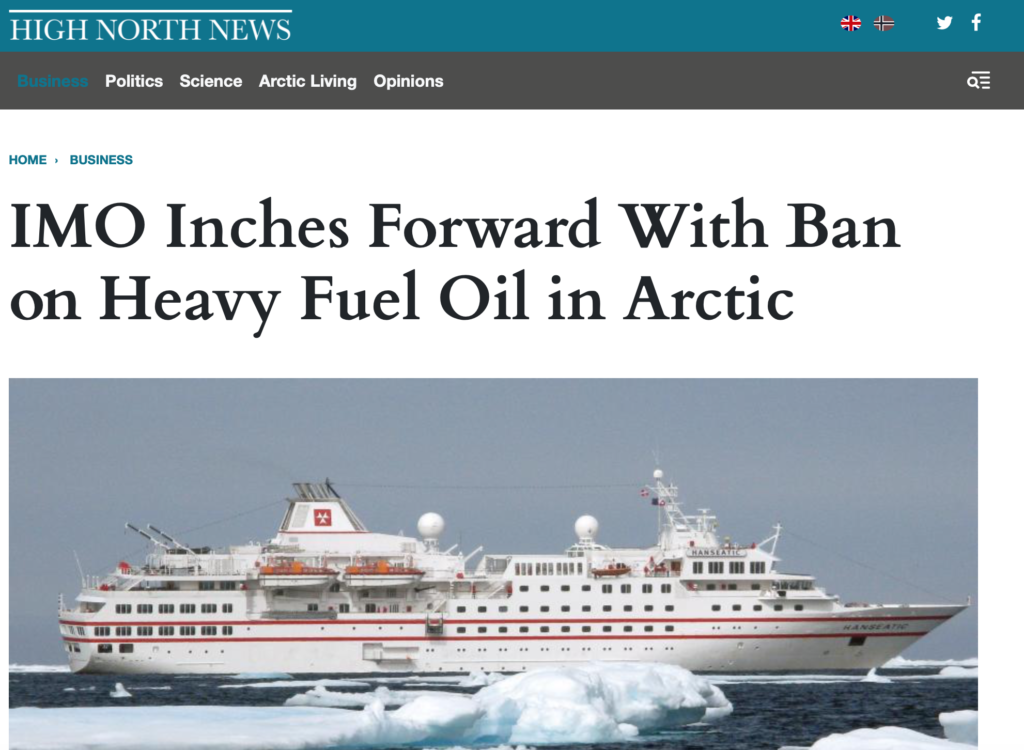
The International Maritime Organization (IMO) continued its efforts to adopt a ban of Heavy Fuel Oil (HFO) in the Arctic by 2021 during a meeting in London. Environmental advocates laud the work, but urge Russia and Canada, the only two Arctic states yet to commit to the ban, to sign on to the initiative.
Port Technology: Arctic Alliance Steps Up HFO Campaign
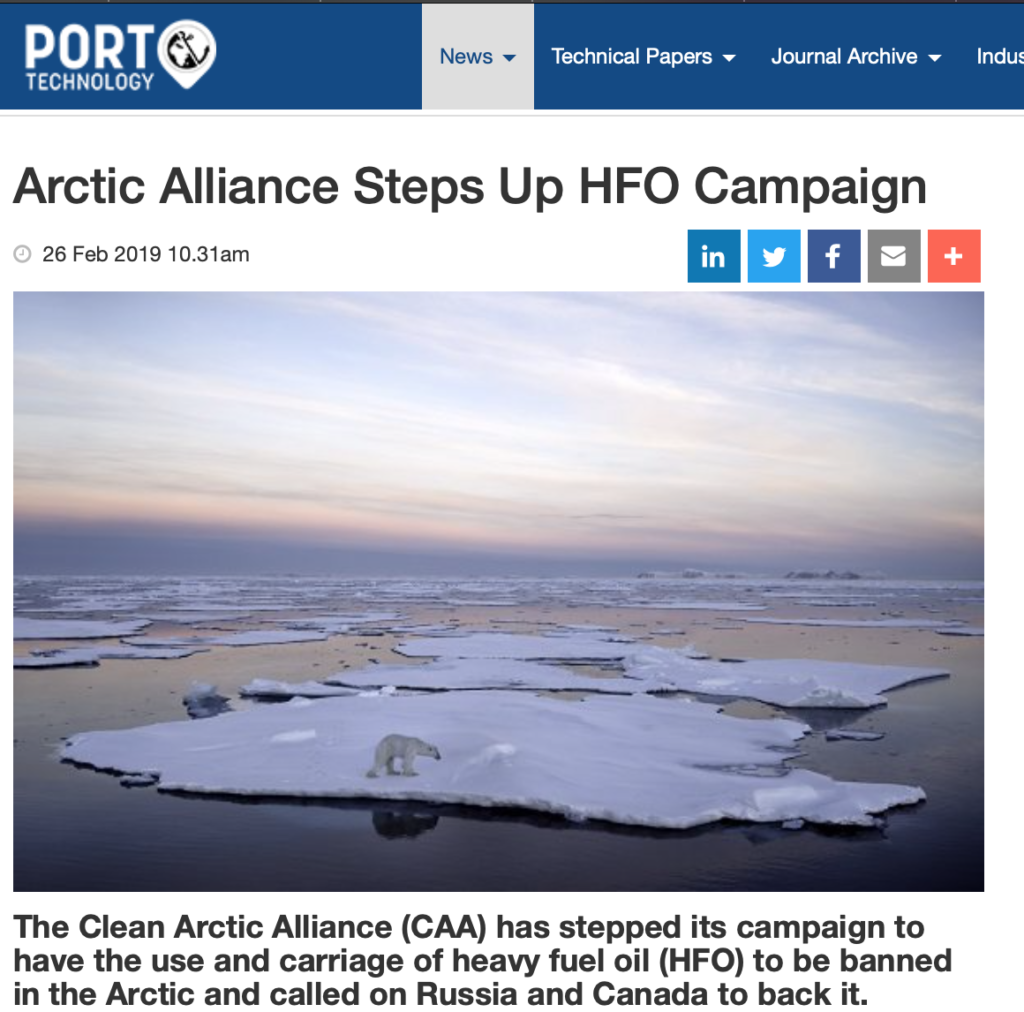
The Clean Arctic Alliance (CAA) has stepped its campaign to have the use and carriage of heavy fuel oil (HFO) to be banned in the Arctic and called on Russia and Canada to back it.
Inside Climate: Global Shipping Inches Forward on Heavy Fuel Oil Ban in Arctic

The International Maritime Organization started work defining which fuels would be banned and how. It also listed ideas to cut black carbon but didn’t prioritize.
PPR6: Clean Arctic Alliance Hails Progress on Heavy Fuel Oil Ban But Warns Arctic Nations To Remain Focussed
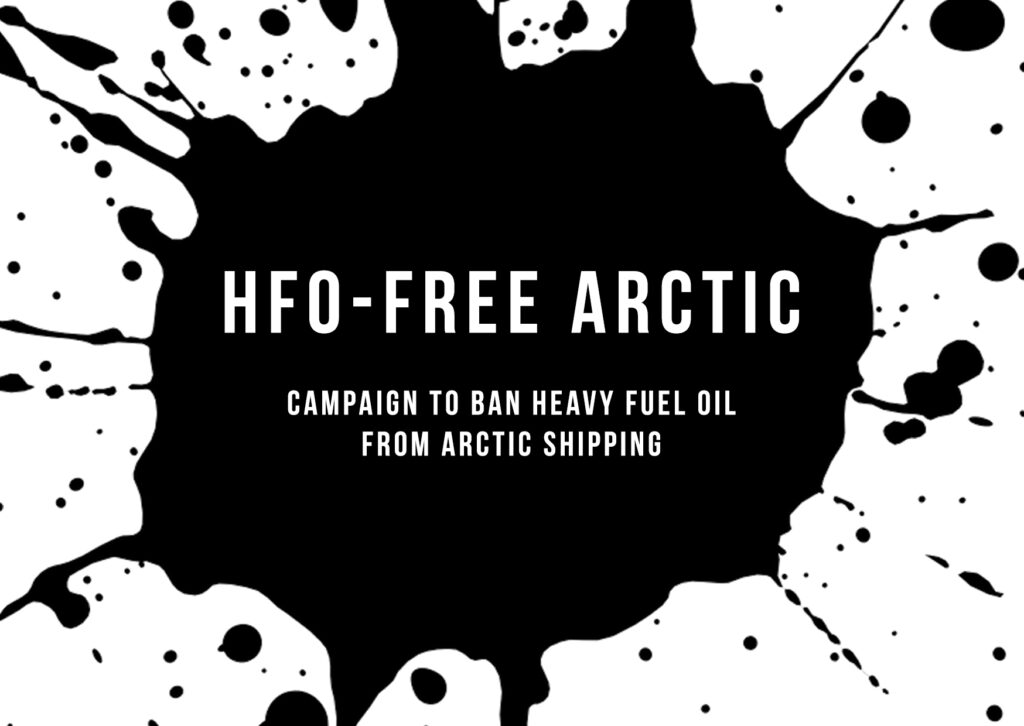
As a meeting of the International Maritime Organization’s (IMO) Sub-Committee on Pollution Prevention and Response (PPR 6) closes today in London, the Clean Arctic Alliance welcome progress but calls on Arctic Nations Russia and Canada to step-up to their responsibilities and add their support for a ban on heavy fuel oil (HFO) from use by Arctic shipping, and for Finland, Sweden, Norway, Denmark, Iceland and the United States, who already support the ban, to remain focussed on ensuring it is adopted in 2021, and phased in by 2023
Video: Clean Arctic Alliance at IMO HQ – Pushing for a HFO Free Arctic
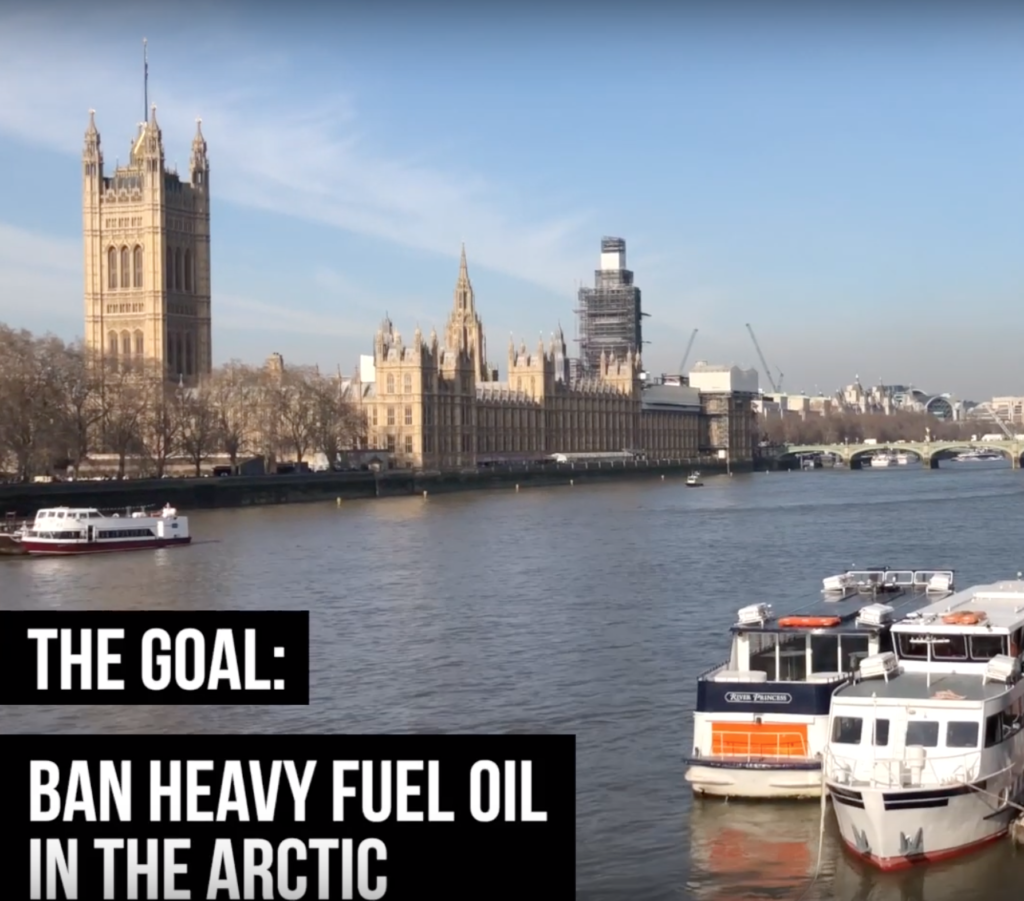
Watch: Members of the Clean Arctic Alliance team at the International Maritime Organization HQ, talking about working for a HFO Free Arctic, during the PPR6 meeting.
The Ecologist: Ridding the Arctic of the world’s dirtiest fuel
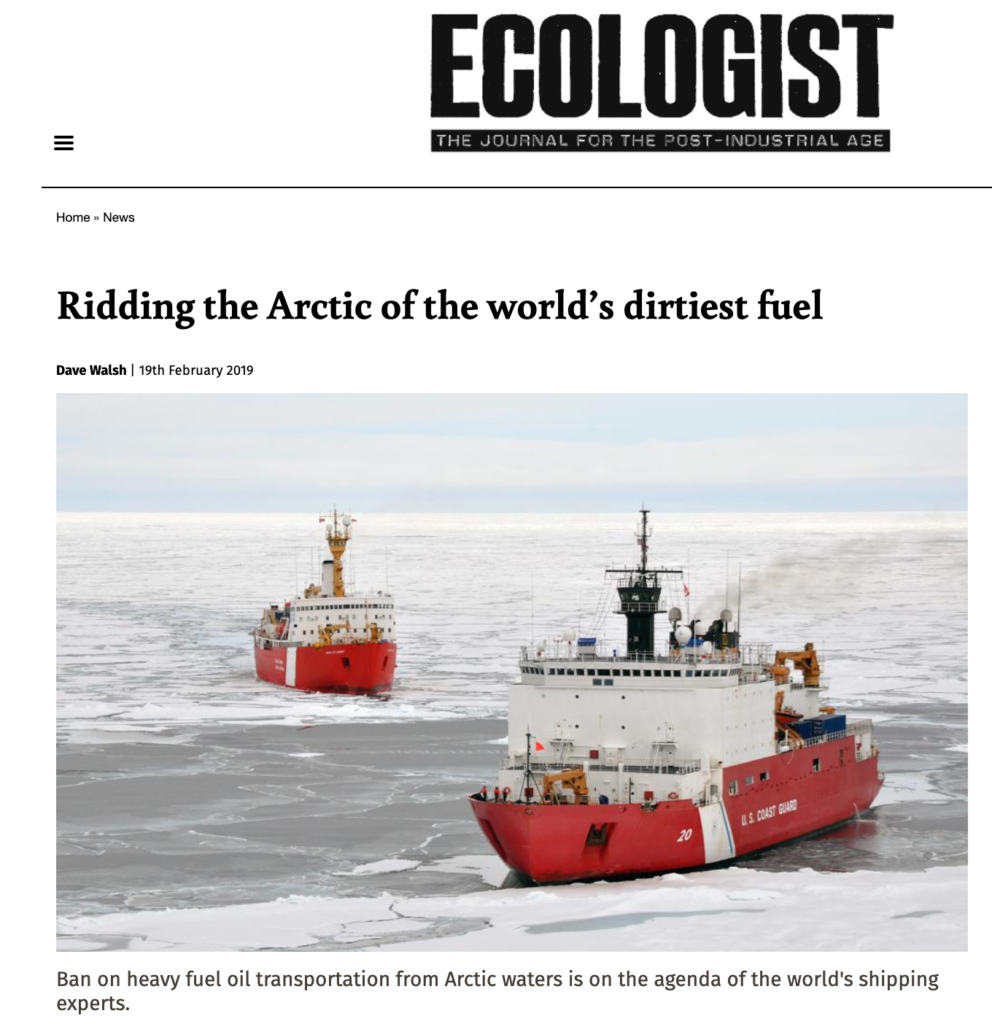
Shipping specialists from around the world are shuttering themselves in the International Maritime Organization’s central London headquarters this week to thrash out a number of issues surrounding the threat of pollution to the climate and oceans from the global shipping industry.
Working Paper: Transitioning away from heavy fuel oil in Arctic shipping
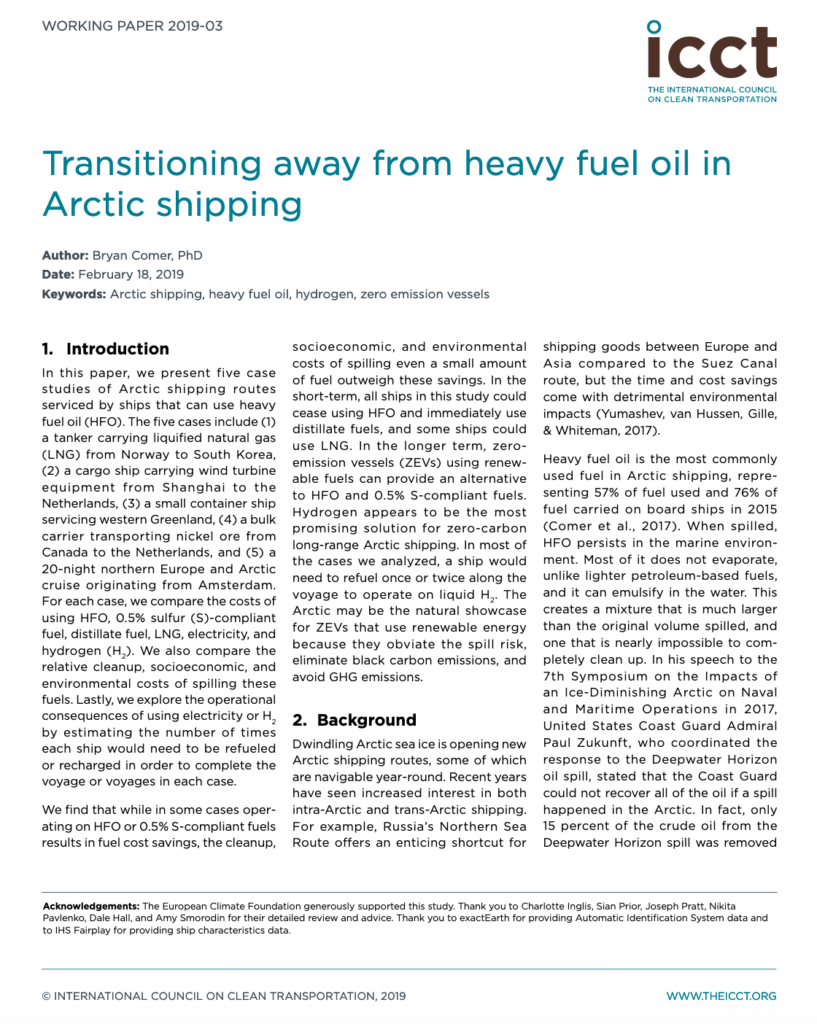
As Arctic shipping increases, pressure is mounting to protect the environment from fuels that are harmful when burned and spilled, including heavy fuel oil (HFO). Presently, the IMO is working to develop a ban on HFO in Arctic waters.
Ridding the Arctic of the World’s Dirtiest Fuel
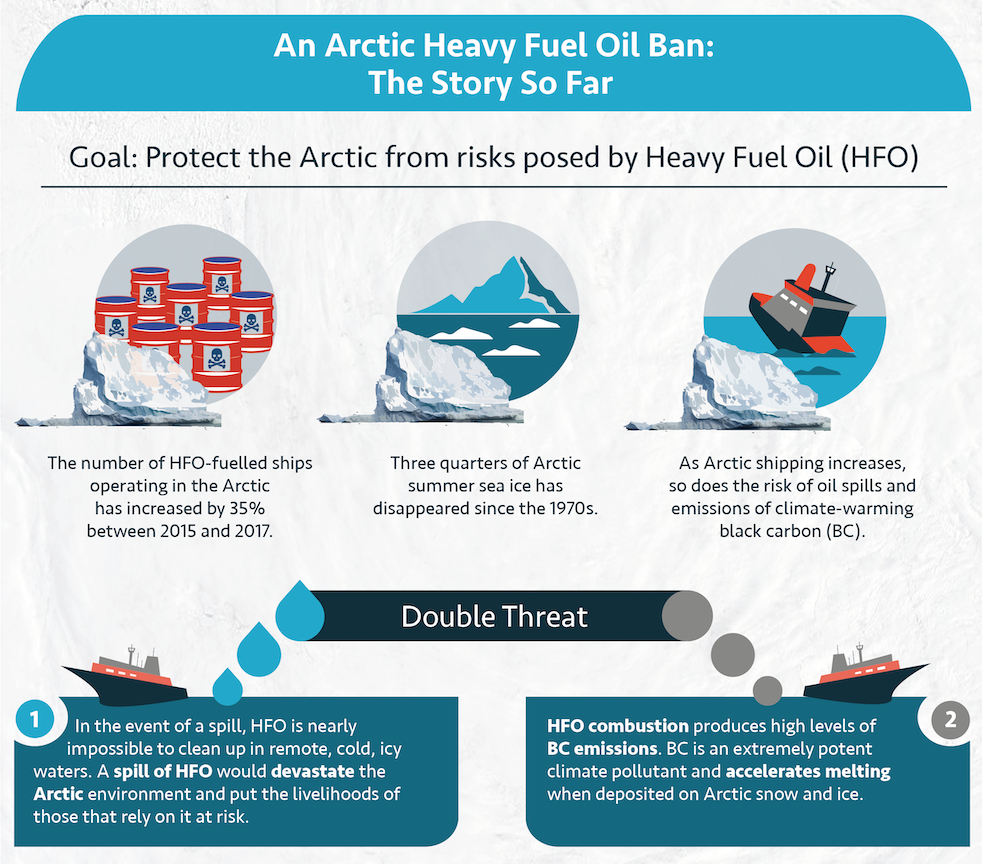
Ensuring the Arctic is protected from oil spills and black carbon pollution from heavy fuel oil is one these ways – it’s achievable, and within our grasp.
Arctic Today: Beginning of the end for HFO
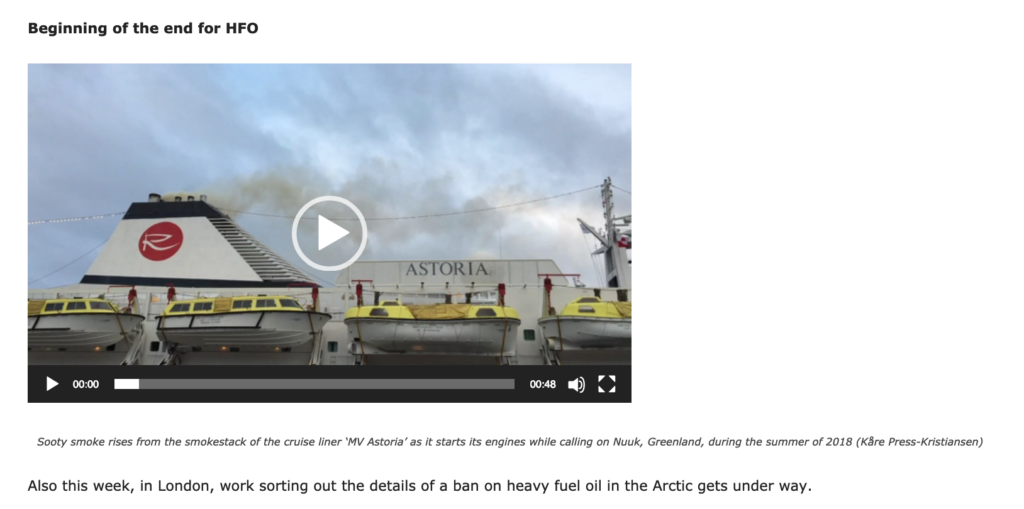
Heavy fuel oil, say those working to eliminate it, poses two different threats in the Arctic. First, when it burns, it releases black carbon, or soot. In addition to being a health hazard, if the soot settles on snow or ice, it makes it less reflective, speeding the rate at which it melts.

